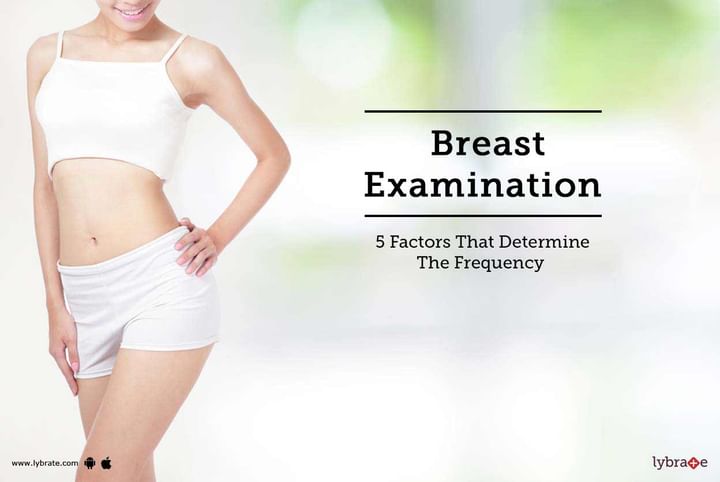Get the App
For Doctors
Login/Sign-up
Last Updated: Oct 23, 2019
BookMark
Report
Breast Examination - 5 Factors That Determine The Frequency
A breast examination is a way of detecting early changes that may find lumps of other growth in the breast. This is a manual form of examination that may be carried out by the doctor or even by the patient. This kind of examination helps in detecting the onset of breast cancer and helps in successful treatment of the same. It is an essential screening strategy that all women must go through. Let us cast a glance on the various details regarding this examination, and also how frequently it must be conducted.
- Age: Women who have reached the age of 18 are said to have matured physically and sexually. They should perform this examination once they have reached the said age in order to detect any anomalies in the way the physical changes occur in the breast tissue.
- Procedure: One should begin by looking at one's reflection in the mirror to find any rashes or dimpling in the breasts. The shape, size and colour of the breasts and nipples must also be studied so as to check for any anomalies. Inverted nipples, redness and soreness must also be reported to the doctor. Once you are done checking the visuals, you can raise your arms and look for any changes. Then, you will need to lie down and feel your breasts by using a circular motion. The finger pads must be used in order to check for any lumps. One must start from the centre and move the breasts sideways. Any wet and slippery feeling must be reported to the doctor immediately.
- Pressure: During the breast examination, you must use light pressure for the skin and tissue that lie beneath the breasts, while medium to moderate pressure should be used for the middle portion of the breasts. One must use a firm hand to check the tissue that lies at the back of the breasts, near the rib cage.
- Frequency: One must get into the habit of conducting a breast examination at least once a fortnight or once a month, without fail. You can also go to the gynaecologist for an examination in case you are not confident of conducting it on your own with proper movements and accuracy. You may also journalise your breast examination findings.
- Menstrual Cycles: When you are going through your menstrual cycle or period, it is important to remember that your breasts can become tender just before or after the start of the cycle. So, do not panic if you think you have found a lump or any other growth at this time. It is best to check again after a week and then visit the doctor about checking the same. If you wish to discuss any specific problem, you can consult a gynaecologist.


+1.svg)
